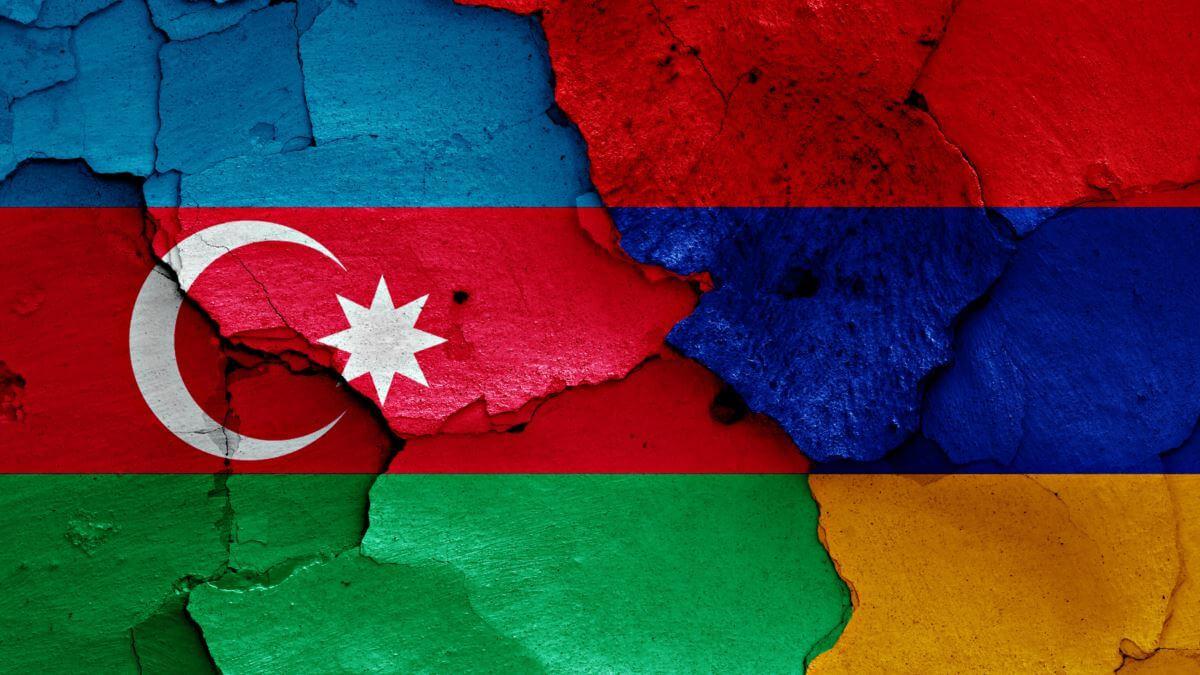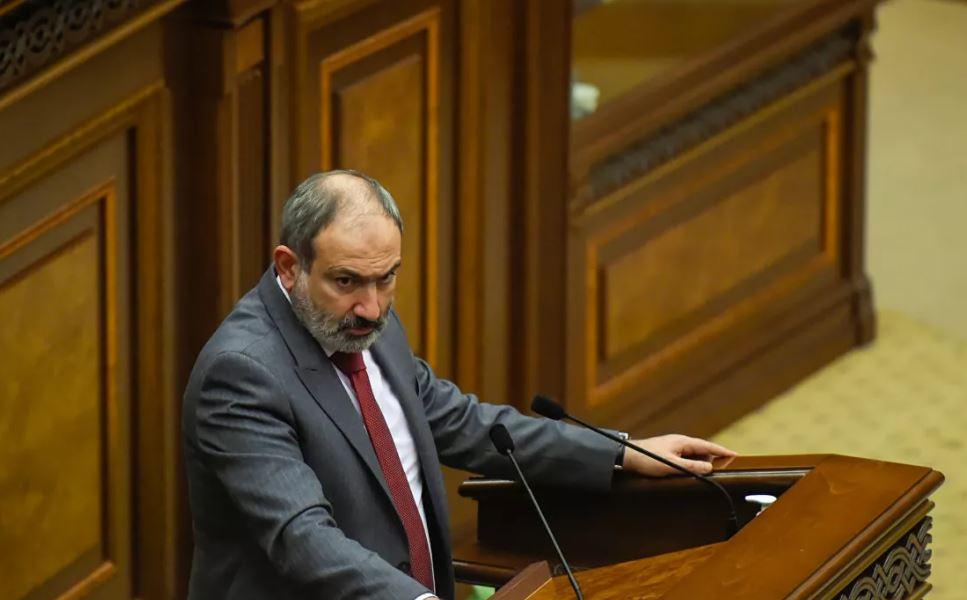Yerevan blocks Brussels to Moscow's tune
Armenia continues to postpone the resolution of issues on the peace agenda with Azerbaijan, hoping to torpedo the implementation of the important agreements reached [so far]. To recap, on April 6, President Ilham Aliyev and Prime Minister Nikol Pashinyan met in Brussels and agreed to form two commissions by late April: one on demarcation and delimitation, and one on peace treaty work.
As you know, Azerbaijan has formed both commissions, while Armenia is delaying. Thus, the Republic of Armenia twice refused to hold meetings on the delimitation of borders, although both times it offered to hold a meeting at the border. First on April 29, then on May 7-11. President Ilham Aliyev drew public attention to this political manoeuvre of Armenia on Wednesday, May 18, during a speech following the talks in Baku with Lithuanian President Gitanas Nauseda.
"Azerbaijan set up its working group on time and was ready to send out a delegation. This was agreed with the Armenian side. By the way, it was the Armenian Foreign Ministry that proposed to hold the first meeting on the border issue. Azerbaijan accepted the offer, and we were ready to send out a delegation. However, on the last day, on 29 April, Armenia cancelled the agreed meeting. This is very disappointing. Even more disappointing was Armenia's refusal to hold a different meeting on the border issue on 7-11 May, based on Armenia's initial proposal," the Azerbaijani president said, considering Armenia's position as irresponsible.
The president noted that Baku expects Yerevan to announce any new date for the start of work, but hopes for a responsible approach in this matter.
"So we are waiting for new dates from Armenia to start work. Because such an irresponsible position, of course, is worrying," the president said, stressing that Azerbaijan is always committed to its obligations, and expects the same from Armenia.
"We must see the same level of responsibility from the side of Armenia. In other words, even though we have certain optimism, such manoeuvres and fairly strange steps of the Armenian government actually undermine certain confidence," Aliyev said.
Thus, President Aliyev once again recalled Armenia's obligations and called on the current authorities in Yerevan for common sense and adequate awareness of the new post-conflict period reality.

Undoubtedly, the message of the Azerbaijani president was heard in Yerevan, but only Armenia's subsequent steps will show how much they realised the senseless delay in normalising relations with Baku and the absence of any alternative in the issue of demarcation and delimitation of borders.
In the meantime, we see that at this stage Armenia is trying to mislead the European Council. It should be noted that the main outcome of the April summit in Brussels was that the parties agreed to start negotiations on the conclusion of a comprehensive peace treaty, in particular, to create a bilateral commission on the delimitation of the Azerbaijani-Armenian border.
After the Brussels meeting, Pashinyan brought to Yerevan a package of proposals from five basic points initiated by Azerbaijan, one of which provided for the delimitation and demarcation of the state border. However, there has been no progress in this direction.
On the contrary, after the meeting of the Azerbaijani, Armenian and the Russian foreign ministers in Dushanbe within the framework of the meeting of the CIS Council of Foreign Ministers, Ararat Mirzoyan said in an interview with the Russian state agency TASS that the meeting of the demarcation and delimitation commissions would allegedly take place in Moscow. As it turned out later, the information of the Armenian diplomat was not confirmed by Baku. Azerbaijan has not confirmed or agreed to hold a bilateral meeting on border delimitation and border security. At the same time, on May 16-17, with the participation of Russian Deputy Prime Minister Alexei Overchuk a meeting was planned in Moscow only on communications issues.
In other words, Armenia brazenly used false information to mislead the international community observing the process of normalization of Armenian-Azerbaijani relations in the post-conflict period. Thus, there is no doubt that Yerevan's diplomatic tricks pursue a single goal - by any means to undermine the agreements reached with Azerbaijan, in this case those that were agreed by the parties through the mediation of EU Council President Charles Michel.
It is curious that negotiations on the delimitation of borders have stalled after the Armenian prime minister's visit to Moscow. The Putin-Pashinyan talks discussed the implementation of the agreements of the Russian, Armenian and Azerbaijani leaders on Karabakh dated November 10, 2020, January 11 and November 26 last year. The fact that the subsequent negotiations on the demarcation of the borders between Armenia and Azerbaijan have not taken place suggests certain thoughts about the possible blocking of this process by Russia. By and large, for Yerevan, acting at the behest of the Kremlin, but constantly looking towards the West, any scenario that hinders in this case the delimitation of borders, and in general the process of normalisation of relations with Baku, is beneficial.
It is no secret that Russia is by no means enthusiastic about Europe's mediation efforts to normalise Armenian-Azerbaijani relations and regards them as interference in the processes in the South Caucasus, control over which is the prerogative of Moscow's foreign policy. In the current geopolitical situation - a serious confrontation between Russia and the West, Moscow demonstrates to Europe its advantage in the region, clearly delineating the zone of its influence and its own interests. Armenia, which is essentially a Russian outpost, torpedoing the Brussels agreements, roughly speaking, is trying to "throw" Europe, thereby linking its future even more firmly with the Eurasian Economic Union.

On the other hand, Pashinyan has no other alternative and no other choice in the current difficult internal political situation in Armenia. The protests that have engulfed Armenia and are directly aimed at changing the government force Pashinyan to blindly follow the Kremlin's dictates. Thus, undermining the agreements reached through Europe's mediation, Pashinyan is trying to enlist Moscow's support to preserve his power. Despite the pro-Western course, which the Armenian prime minister tried to adhere to from the first day, his attempts to bring Armenia under the western flank were unsuccessful. Poor and unpromising Armenia turned out to be unnecessary for the electoral Old World. And this is quite a natural choice for Europe. Brussels and Washington prefer to build long-term and mutually beneficial relations with the leading country of the South Caucasus - Azerbaijan, which is able to ensure Europe's energy security in the long term. Needless to mention that the large-scale transport projects implemented by Baku are of great interest to the European continent. Therefore, it is not surprising that Europe is making every effort to ensure the security and stability of the region, as well as its development, forcing Armenia to unblock vital transport communications. All these goals meet the interests of both Europe and Azerbaijan. Armenia has actually discredited itself as an independent state, and today it is already perceived in the West as a Russian province in the Caucasus.
In turn, Russia has all the political levers of pressure on Armenia, which it does not intend to concede to the West. Therefore, Pashinyan's candidacy as head of state is quite acceptable to Russia. And this is also understandable. After all, it is much easier to manipulate a state run by a person who does not have a firm political will, but has an impressive list of diplomatic failures in regional and international politics. However, the last anniversary summit of the Collective Security Treaty Organization, at which Pashinyan again accused the members of this organization of all mortal sins, complaining about Armenia's defeat in the 44-day war in 2020 in Karabakh, was another confirmation of this.








